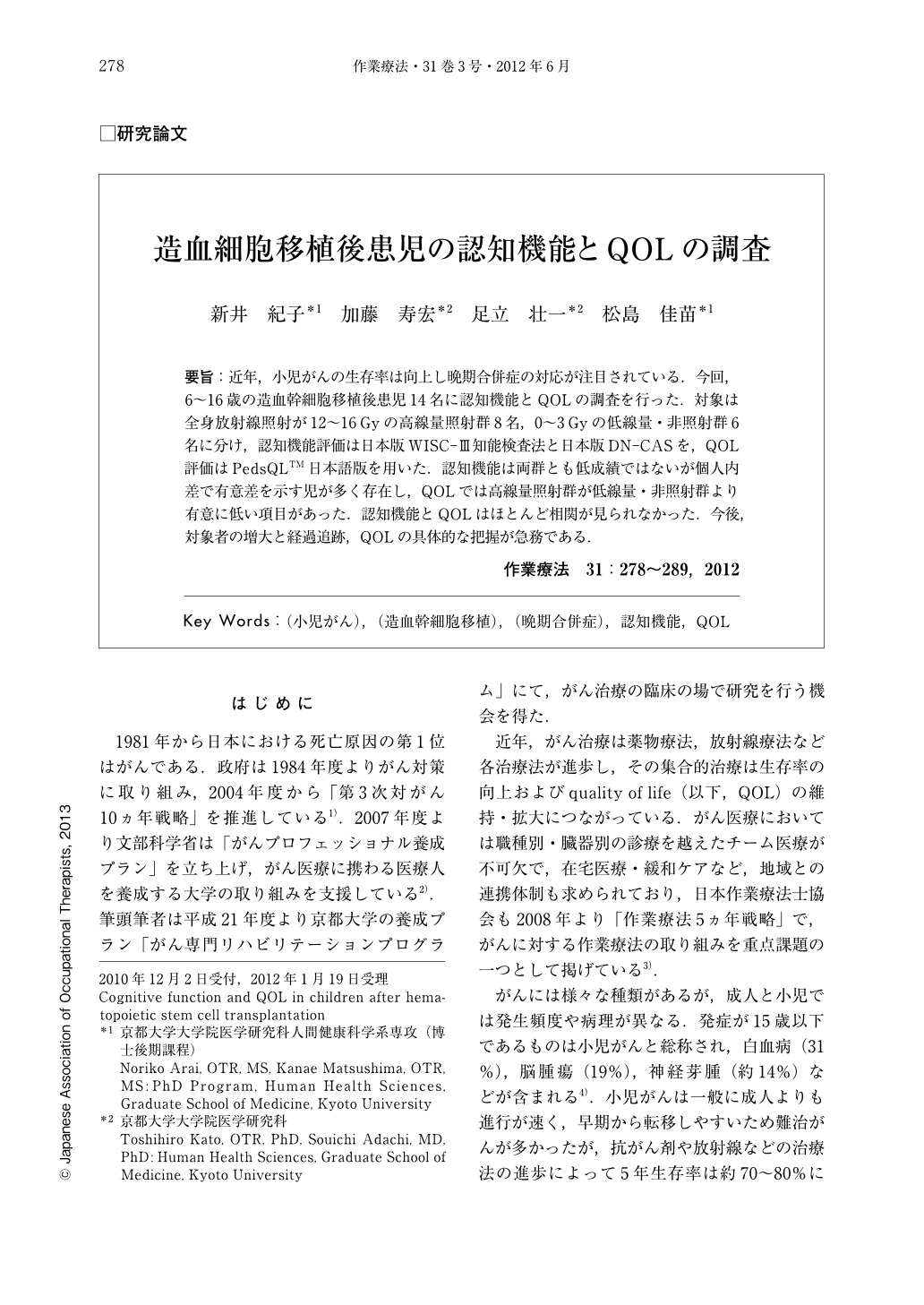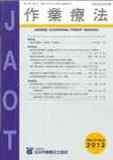Japanese
English
- 販売していません
- Abstract 文献概要
- 1ページ目 Look Inside
- 参考文献 Reference
要旨:近年,小児がんの生存率は向上し晩期合併症の対応が注目されている.今回,6~16歳の造血幹細胞移植後患児14名に認知機能とQOLの調査を行った.対象は全身放射線照射が12~16Gyの高線量照射群8名,0~3Gyの低線量・非照射群6名に分け,認知機能評価は日本版WISC-Ⅲ知能検査法と日本版DN-CASを,QOL評価はPedsQLTM日本語版を用いた.認知機能は両群とも低成績ではないが個人内差で有意差を示す児が多く存在し,QOLでは高線量照射群が低線量・非照射群より有意に低い項目があった.認知機能とQOLはほとんど相関が見られなかった.今後,対象者の増大と経過追跡,QOLの具体的な把握が急務である.
The survival rate of childhood cancer has recently improved greatly. Therefore, treatments which reduce late stage side effects have been selected. Cognitive dysfunction is one of these side effects. The purpose of this study is to investigate the efficacy of occupational therapy on cognitive function and Quality of Life (QOL) of children after hematopoietic stem cell transplantation for treatment of hematological malignancy and aplastic anemia.
Participants in the study were fourteen children who received hematopoietic stem cell transplantation. 4 boys and 10 girls, aged 6 to 16 years old were divided into a high irradiation (HI) group and a low/non-irradiation (L/NI) group. The HI group was composed of 8 children who received whole body irradiation (12-16Gy), and the L/NI group was composed of 6 children who received the whole body irradiation (3Gy) and 4 who received no irradiation. The Wechsler Intelligence Scale for Children-Third Edition (WISC-Ⅲ) and The Das-Naglieri Cognitive Assessment System (DN-CAS) were used to the investigation cognitive function, and QOL was investigated by The Pediatric Quality of Life InventoryTM (PedsQL).
Regarding the of WISC-Ⅲ and total standard scores of the DN-CAS, there were no unusually low scores in either group. However, about 30 percent of the children exhibited large individual differences of ability.
Regarding PedsQL, statistical analysis showed that scores of some items in the HI group were lower than that of L/NI group.
There was little correlation among the scores of WISC-Ⅲ, DN-CAS and PedsQL. Additional research is needed on increased numbers of participants regarding the actual state of their QOL.

Copyright © 2012, Japanese Association of Occupational Therapists. All rights reserved.


